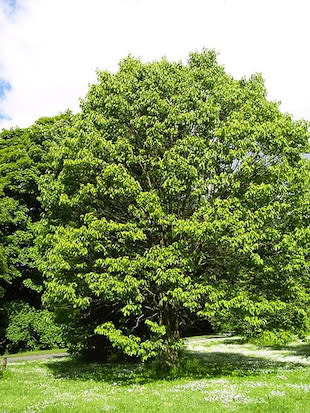 The Sideshow
The SideshowCould hangovers and alcoholism be cured by a Chinese tea extract?

A new Chinese tea extract now undergoing tests on rats has shown promise as a remedy for hangovers and may even lead to an eventual cure for alcoholism itself, according to a report in the New Scientist.
Grown primarily in Japan, Havenia dulcis, also known as the oriental raisin tree, has been a folk remedy for 500 years or so in the treatment of hangover symptoms. Scientists are now working on extracting dihydromyricetin (DHM) from the trees in order to determine whether it can mitigate the effects of alcohol on laboratory rats. If the tests continue to yield successful results, comparable testing on humans should begin soon.
Researchers are also suggesting that the chemical may have the potential to treat alcohol addiction itself. So far, the laboratory testing has found that not only do the rats recover more quickly from the alcohol they have consumed--but they also show a lessening desire over time to consume alcohol at all.
"I would give it to problem drinkers who can't resist going to the pub and drinking," says pharmacologist Jing Liang of the University of California, Los Angeles, who led the research team.
"DHM will reduce the degree of drunkenness for the amount of alcohol drunk and will definitely reduce the hangover symptoms," Liang said. "In time, it will reduce their desire for alcohol."
In December 2008, the Korea Food & Drug Administration approved using DHM to help the liver recover from the effects of alcohol. The main ingredient in DHM is something called Quercetin, which has anti-inflammatory and anti-oxidant properties.
Curiously, other extracts from the tree are used in the production of certain types of wine.
More from the New Scientist on how DHM has been working with the lab rats:
After she injected rats' abdomens with a dose of alcohol proportionate to the amount a human would get from downing 15 to 20 beers in 2 hours by a human, they took about 70 minutes, on average, to right themselves. However, when an injection of the same amount of booze included a milligram of DHM per kilogram of rat body weight, the animals recovered their composure within just 5 minutes.
DHM also stopped rats in a maze from behaving in ways resembling anxiety and hangovers. Rats given heavy doses of alcohol cowered away in corners of the maze, whereas those given the extract with their alcohol behaved normally and were as inquisitive as rats given no alcohol at all, exploring the more open corridors of the maze.
Finally, DHM appeared to discourage rats from boozing when they had a free choice between drinking a sweetened solution of alcohol or sweetened water. Over a period of three months, rats will normally get addicted to increasing volumes of the hard stuff. Rats given DHM, though, drank no more than about a quarter of the amount that the "boozers" eventually built up to. Moreover, boozy rats that had worked up to the higher levels suddenly dropped down to a moderate intake when given DHM after seven weeks.
Of course, there are concerns over what effect a so-called cure to hangovers and alcoholism might have on the public. "There was a lot of philosophical worry that an 'alcohol antidote' would entice people to consume alcohol and then count on being able to terminate the intoxicating effects on demand," said Markus Heilig, clinical director of the U.S. National Institute on Alcohol Abuse and Alcoholism.
In the meantime, testing is expected to move forward.
Other popular Yahoo! News stories:
• Fight over an orange leads to family murder-suicide
• Doomsday clock moves closer to midnight
• Video: Dog rescued in Gulf of Mexico had just survived car crash

